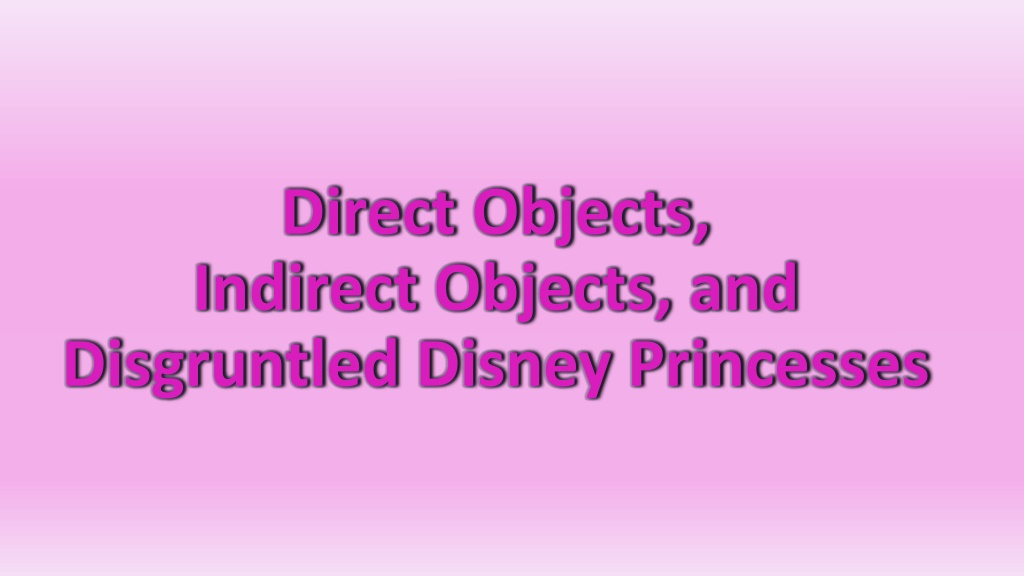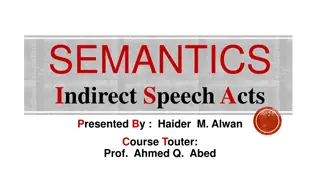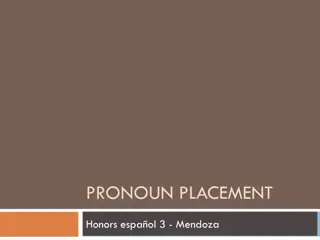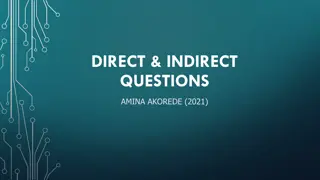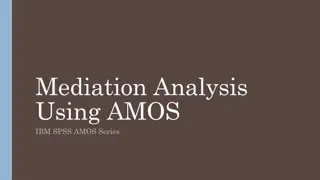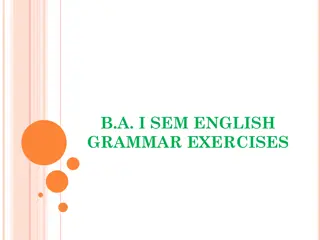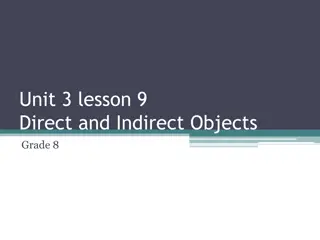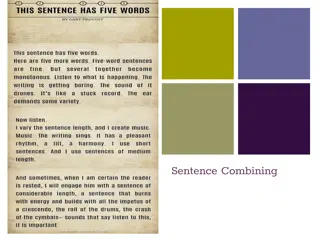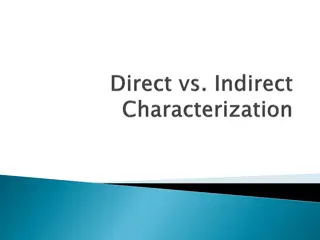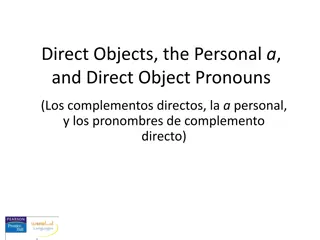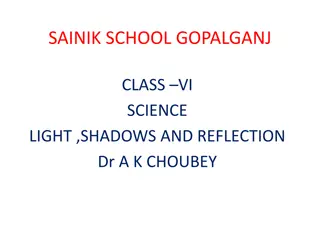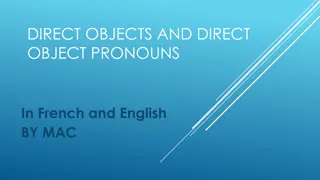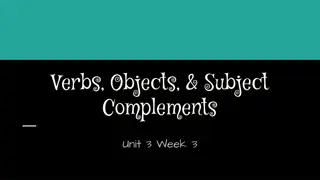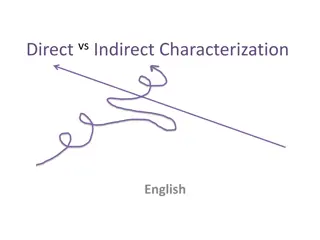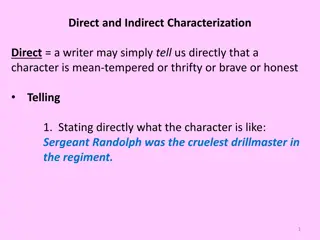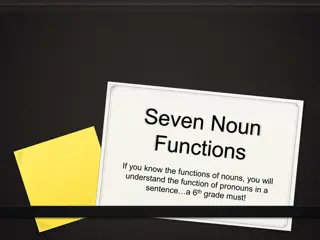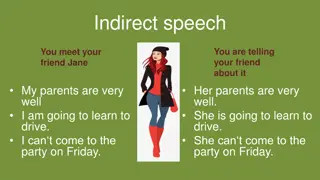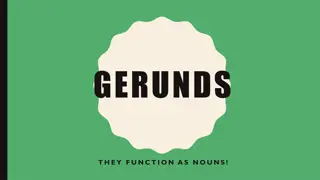Understanding Direct and Indirect Objects in Sentences
Learn about direct objects, indirect objects, and how they are used in sentences. Explore examples with Disney princesses like Snow White and Ariel to understand the concept better. Discover the difference between transitive and intransitive verbs and their usage in sentences.
Download Presentation

Please find below an Image/Link to download the presentation.
The content on the website is provided AS IS for your information and personal use only. It may not be sold, licensed, or shared on other websites without obtaining consent from the author. Download presentation by click this link. If you encounter any issues during the download, it is possible that the publisher has removed the file from their server.
E N D
Presentation Transcript
Direct Objects, Indirect Objects, and Disgruntled Disney Princesses
verb direct object Snow White cleans the house. predicate subject The verb in the predicate is the action word. Sentences with direct objects use a special kind of verb called a transitive verb. The direct object in the predicate is the thing that receives the action.
Transitive verbs are verbs that transfer the action from the subject to the direct object. Snow White cleans the house. Intransitive verbs are verbs that do no connect a subject to a direct object. Snow White scrubs the dishes. Snow White cries. Snow White despairs. Snow White sweeps the floors. Note that some verbs can be both transitive and intransitive, depending on how they are used in the sentence. Snow White washes the windows. Snow White sings. Snow White sings a song of misery. Snow White takes Lexapro.
Transitive or Intransitive? INTRANSITIVE Ariel sings all the time. TRANSITIVE Ariel signs her name. TRANSITIVE Ariel forfeits her voice to win love. Prince Eric loses interest in Ariel. TRANSITIVE Ursula laughs evilly. INTRANSITIVE Ariel regrets her decision. TRANSITIVE Ariel dies sad and alone. INTRANSITIVE
Transitive or Intransitive?... continued Ariel lies down to daydream about Prince Eric. INTRANSITIVE The verb lie means to recline (as well as to be dishonest). In the original Hans Christian Anderson fairy tale, the Little Mermaid lays down her life so the Prince can be with another woman. TRANSITIVE The verb lay means to place or set down.
Be careful: not all sentences contain direct objects. predicate nominative verb Snow White becomes a servant. predicate subject predicate adjective verb Snow White feels empty. predicate subject
The word objectifymeans to make into an object or to treat (someone) as an object rather than as a person (Merriam-Webster s Dictionary).
Direct objects can be nouns, pronouns, infinitives, gerunds, and noun clauses*. subject verb direct object (noun) Belle loved books. verb subject direct object (pronoun) Beast captured her. subject verb direct object (infinitive phrase) Belle didn t want to see the signs of domestic abuse. verb subject direct object (gerund phrase) Belle feared angering Beast. verb subject direct object (noun clause) Belle believed that she could change Beast. *a noun clause is a dependent clause that functions as a noun they often start with that, what, or how
The indirect object receives the direct object. Pocahontas gives John Smith the corn. subject verb Be careful! This is not an indirect object! Indirect object direct object Pocahontas gives the corn to John Smith. subject direct object verb prepositional phrase
Sentences with indirect objects almost always follow this formula: + + verb indirect object direct object. + Subject Mother Earth tells Pocahontas a story. Pocahontas shows John Smith the beauty of nature. Give me the gold! says Governor Ratcliffe. The English promise the Native Americans payment.
